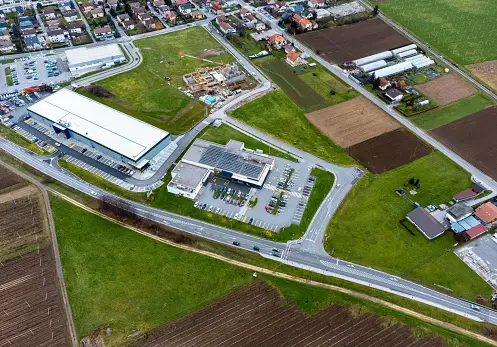10 Secrets to Successful Land Development In 2023

10 Secrets to Successful Land Development In 2023? The year 2023 presents numerous opportunities for real estate developers to engage in successful land development projects. However, thriving in this competitive industry requires a comprehensive understanding of various aspects that contribute to a project’s success. In this article, we will delve into the ten secrets that can help you achieve triumphant land development ventures in 2023.
To start, one must conduct thorough research on current market trends. Analyzing local demand is crucial to identifying potential opportunities for development. Simultaneously, understanding zoning laws and regulations can prevent unforeseen obstacles in the planning process.
Analyzing Local Demand
Identifying the demands and preferences of the target market can guide your land development decisions. Consider factors such as housing needs, commercial requirements, and recreational facilities to meet the community’s needs effectively.
Studying Zoning Laws and Regulations

Zoning laws play a pivotal role in determining the type of development allowed in specific areas. Understanding these regulations ensures your project complies with the legal framework, reducing potential conflicts with local authorities.
Location, Location, Location
The significance of selecting the right location cannot be overstated. The success of a land development project hinges on its site selection, which influences market demand and property values.
Importance of Site Selection
Choosing a prime location with proximity to essential amenities, transportation hubs, and recreational spots can attract potential buyers and investors. It also enhances the long-term value and desirability of the development.
Evaluating Accessibility and Connectivity
Accessibility is a key consideration in land development. Ensuring easy connectivity to major road networks and public transportation facilities improves the accessibility and overall attractiveness of the development.
Conducting a Feasibility Study
Before proceeding with a project, it is vital to conduct a feasibility study. This comprehensive assessment evaluates the viability and potential challenges associated with the development.
Assessing Infrastructure and Utilities
Examining the availability and condition of infrastructure and utilities on the site is essential. Adequate access to water, electricity, sewage systems, and other utilities is critical for successful land development.
Considering Environmental Impact
Sustainable and eco-friendly practices are becoming increasingly important in modern developments. Evaluating the environmental impact of your project and implementing eco-conscious strategies can boost its appeal to environmentally conscious buyers.
Collaborating with Experts and Stakeholders
Successful land development often requires collaboration with various experts and stakeholders. Engaging architects, engineers, and local communities can enhance the project’s overall success.
Engaging Architects and Engineers
Hiring skilled architects and engineers is crucial in creating functional and visually appealing designs. Their expertise can optimize the use of available space and maximize the potential of the development.
Read More: How to Build Your Business in NYC: 10 Proven Ways
Involving the Local Community
Incorporating the opinions and feedback of the local community in the planning process can build goodwill and address potential concerns. Engaging with stakeholders fosters a sense of ownership and acceptance of the development.
Budgeting and Financing
A well-thought-out budget and reliable financing options are imperative for the smooth execution of a land development project.
Estimating Costs and Expenses
Accurate cost estimation is essential to avoid financial constraints during the project. Consider all aspects, including construction costs, permits, legal fees, and contingency funds.
Exploring Funding Options
Explore various funding sources, such as loans, partnerships, and investors, to secure the necessary financial backing for the project.
Effective Project Management
Efficient project management is key to meeting deadlines and ensuring the successful completion of the development.
Creating a Detailed Timeline
A well-structured timeline with clear milestones helps keep the project on track. Regularly assess progress to address any delays promptly.
Managing Resources Efficiently
Optimize the use of resources, such as labor and materials, to maintain the project’s budget and quality standards.
Prioritizing Sustainability
Incorporating sustainable practices into your development can have long-term benefits for the environment and community.
Implementing Green Building Techniques
Utilize eco-friendly building materials and construction practices to reduce the environmental footprint of the project.
Promoting Eco-Friendly Practices
Encourage green living within the community by incorporating green spaces, renewable energy sources, and recycling initiatives.
Navigating Legal and Regulatory Challenges
Land development projects often encounter legal and regulatory hurdles that must be navigated skillfully.
Obtaining Necessary Permits
Thoroughly understand the permit requirements and ensure all necessary permits are obtained before commencing any construction.
Complying with Land Use Laws
Adhere to land use laws and regulations to avoid potential legal disputes that may halt the project.
Marketing and Sales Strategies
Effective marketing and sales strategies are crucial in attracting buyers and ensuring the project’s success.
Identifying Target Buyers
Understand the preferences and needs of potential buyers to tailor marketing efforts and attract the right audience.
Showcasing Unique Selling Points
Highlight the unique features and benefits of the development to set it apart from competitors in the market.
Conclusion
Successful land development in 2023 requires a strategic and multifaceted approach. By understanding market trends, selecting the right location, conducting thorough feasibility studies, collaborating with experts, managing resources efficiently, and prioritizing sustainability, developers can unlock the secrets to a thriving project. Remember, engaging with the community, complying with regulations, and implementing effective marketing strategies will further enhance the chances of success in this dynamic industry.
FAQs
What is the significance of location in land development?
Location plays a critical role in determining the demand, value, and long-term success of a land development project. Choosing a prime location with good accessibility and amenities can attract potential buyers and investors.
How can sustainability be incorporated into land development projects?
Sustainability can be integrated through eco-friendly building techniques, renewable energy sources, green spaces, and recycling initiatives, creating environmentally conscious and attractive developments.
Why is a feasibility study essential for land development?
A feasibility study assesses the viability and potential challenges of a project, helping developers make informed decisions and avoid costly mistakes during the development process.
What role does community engagement play in land development?
Involving the local community in the planning process builds goodwill, addresses concerns, and fosters acceptance of the development, leading to smoother project execution.
How can developers secure financing for their land development projects?
Developers can explore various funding options, such as loans, partnerships, and investors, to secure the necessary financial backing for their projects.











